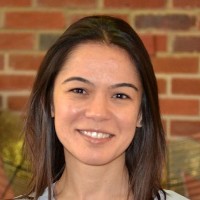“I had no idea assessment could be so joyful!”
– Professional Learning participant
The Implementing Practices of Ambitious Teaching for Complex Assessment Tasks (IMPACT) project employs performance assessments as a lever for instructional improvement by eliciting, centering, and advancing students’ thinking in middle school science classrooms. Through a research-practice partnership (RPP), our team aims to build foundational knowledge about how a large, urban school district implements and sustains a practice-based professional learning program. IMPACT professional learning (PL) is designed to transform the culture of assessment such that assessments become an integral component of ambitious, asset-based science instruction.
The IMPACT Professional Learning (PL) Design
 Teams of teachers and leaders engage in collaborative analysis and reflection using artifacts of student thinking and teacher practice from performance assessments to plan, implement, and reflect on their implementation of the assessments. The cycle happens three times over the course of a year, each focused on an instructionally-embedded performance assessment that the teachers are using to work on their asset-based assessment practice.
Teams of teachers and leaders engage in collaborative analysis and reflection using artifacts of student thinking and teacher practice from performance assessments to plan, implement, and reflect on their implementation of the assessments. The cycle happens three times over the course of a year, each focused on an instructionally-embedded performance assessment that the teachers are using to work on their asset-based assessment practice.




 IMPACT is a design-based research project that draws on three primary theoretical frameworks to guide how we use the implementation of performance assessments to advance and study teachers’ learning.
IMPACT is a design-based research project that draws on three primary theoretical frameworks to guide how we use the implementation of performance assessments to advance and study teachers’ learning. 



